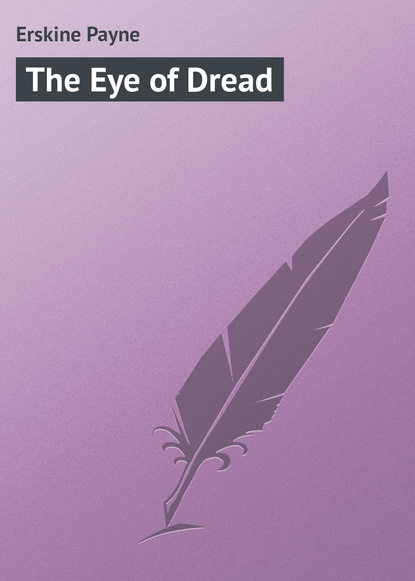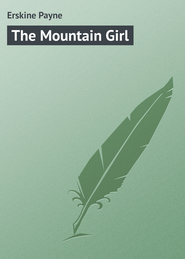По всем вопросам обращайтесь на: info@litportal.ru
(©) 2003-2024.
✖
The Eye of Dread
Настройки чтения
Размер шрифта
Высота строк
Поля
“The young men of the present day have little use for beaten paths and safe ways. I offered him a position in the bank, but no–he must go to Scotland first to make the acquaintance of our aunts. If he had been satisfied with that! But no, again, he must go to Ireland on a fool’s errand to learn something of his father.” The Elder paused and bit his lip, and a vein stood out on his forehead. “He’s never seen fit to write me of late.”
“Of course such a big scheme as this road across the plains would appeal to a man like Richard. He’s doing very well, father. I wouldn’t be disturbed about him.”
“Humph! I might as well be disturbed about the course of the Wisconsin River. I might as well worry over the rush of a cataract. The lad has no stability.”
“He never fails to write to me, and I must say that he was considered the most dependable man in the regiment.”
“What is he doing? I should like to see the boy again.” Hester looked across at her son with a warm, loving light in her eyes.
“I don’t know exactly, but it’s something worth while, and calls for lots of energy. He says they are striking out into the dust and alkali now–right into the desert.”
“And doesn’t he say a word about when he is coming back?”
“Not a word, mother. He really has no home, you know. He says Scotland has no opening for him, and he has no one to depend on but himself.”
“He has relatives who are fairly well to do in Ireland.”
The Elder frowned. “So I’ve heard, and my aunts in Scotland talked of making him their heir, when I was last there.”
“He knows that, father, but he says he’s not one to stand round waiting for two old women to die. He says they’re fine, decorous old ladies, too, who made a lot of him. I warrant they’d hold up their hands in horror if they knew what a rough life he’s leading now.”
“How rough, my son? I wish he’d make up his mind to come home.”
“There! I told him this is his home; just as much as it is mine. I’ll write him you said that, mother.”
“Indeed, yes. Bless the boy!”
The Elder looked at his wife and lifted his brows, a sign that it was time the meal should close, and she rose instantly. It was her habit never to rise until the Elder gave the sign. Peter Junior walked down the length of the hall at his father’s side.
“What Richard really wished to do was what I mentioned to you yesterday for myself. He wanted to go to Paris and study, but after visiting his great-aunts he saw that it would be too much. He would not allow them to take from their small income to help him through, so he gave it up for the time being; but if he keeps on as he is, it is my opinion he may go yet. He’s making good money. Then we could be there together.”
The Elder made no reply, but stooped and drew on his india-rubber overshoes,–stamping into them,–and then got himself into his raincoat with sundry liftings and hunchings of his shoulders. Peter Junior stood by waiting, if haply some sort of sign might be given that his remark had been heeded, but his father only carefully adjusted his hat and walked away in the rain, setting his feet down stubbornly at each step, and holding his umbrella as if it were a banner of righteousness. The younger man’s face flushed, and he turned from the door angrily; then he looked to see his mother’s eyes fixed on him sadly.
“At least he might treat me with common decency. He need not be rude, even if I am his son.” He thought he detected accusation of himself in his mother’s gaze and resented it.
“Be patient, dear.”
“Oh, mother! Patient, patient! What have you got by being patient all these years?”
“Peace of mind, my son.”
“Mother–”
“Try to take your father’s view of this matter. Have you any idea how hard he has worked all his life, and always with the thought of you and your advancement, and welfare? Why, Peter Junior, he is bound up in you. He expected you would one day stand at his side, his mainstay and help and comfort in his business.”
“Then it wasn’t for me; it was for himself that he has worked and built up the bank. It’s his bank, and his wife, and his son, and his ‘Tower of Babel that he has builded,’ and now he wants me to bury myself in it and worship at his idolatry.”
“Hush, Peter. I don’t like to rebuke you, but I must. You can twist facts about and see them in a wrong light, but the truth remains that he has loved you tenderly–always. I know his heart better than you–better than he. It is only that he thinks the line he has taken a lifetime to lay out for you is the best. He is as sure of it as that the days follow each other. He sees only futility in the way you would go. I have no doubt his heart is sore over it at this moment, and that he is grieving in a way that would shock you, could you comprehend it.”
“Enough said, mother, enough said. I’ll try to be fair.”
He went to his room and stood looking out at the rain-washed earth and the falling leaves. The sky was heavy and drab. He thought of Betty and her picnic and of how gay and sweet she was, and how altogether desirable, and the thought wrought a change in his spirit. He went downstairs and kissed his mother; then he, too, put on his rubber overshoes and shook himself into his raincoat and carefully adjusted his hat and his umbrella. Then with the assistance of the old blackthorn stick he walked away in the rain, limping, it is true, but nevertheless a younger, sturdier edition of the man who had passed out before him.
He found Betty alone as he had hoped, for Mary Ballard had gone to drive her husband to the station. Bertrand was thinking of opening a studio in the city, at his wife’s earnest solicitation, for she thought him buried there in their village. As for the children–they were still in school.
Thus it came about that Peter Junior spent the rest of that day with Betty in her father’s studio. He told Betty all his plans. He made love to her and cajoled her, and was happy indeed. He had a winsome way, and he made her say she loved him–more than once or twice–and his heart was satisfied.
“We’ll be married just as soon as I return from Paris, and you’ll not miss me so much until then?”
“Oh, no.”
“Ah–but–but I hope you will–you know.”
“Of course I shall! What would you suppose?”
“But you said no.”
“Naturally! Didn’t you wish me to say that?”
“I wanted you to tell the truth.”
“Well, I did.”
“There it is again! I’m afraid you don’t really love me.”
She tilted her head on one side and looked at him a moment. “Would you like me to say I don’t want you to go to Paris?”
“Not that, exactly; but all the time I’m gone I shall be longing for you.”
“I should hope so! It would be pretty bad if you didn’t.”
“Now you see what I mean about you. I want you to be longing for me all the time, until I return.”
“All right. I’ll cry my eyes out, and I’ll keep writing for you to come home.”
“Oh, come now! Tell me what you will do all the time.”
“Oh, lots of things. I’ll paint pictures, too, and–I’ll write–and help mother just as I do now; and I’ll study art without going to Paris.”
“Will you, you rogue! I’d marry you first and take you with me if it were possible, and you should study in Paris, too–that is, if you wished to.”
“Wouldn’t it be wonderful! But I don’t know–I believe I’d rather write than paint.”
“I believe I’d rather have you. They say there are no really great women artists. It isn’t in the woman’s nature. They haven’t the strength. Oh, they have the delicacy and all that; it’s something else they lack.”
“Humph! It’s rather nice to have us lacking in one thing and another, isn’t it? It gives you men something to do to discover and fill in the lacks.”
“I know one little lady who lacks in nothing but years.”






